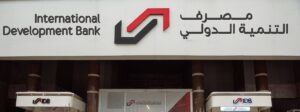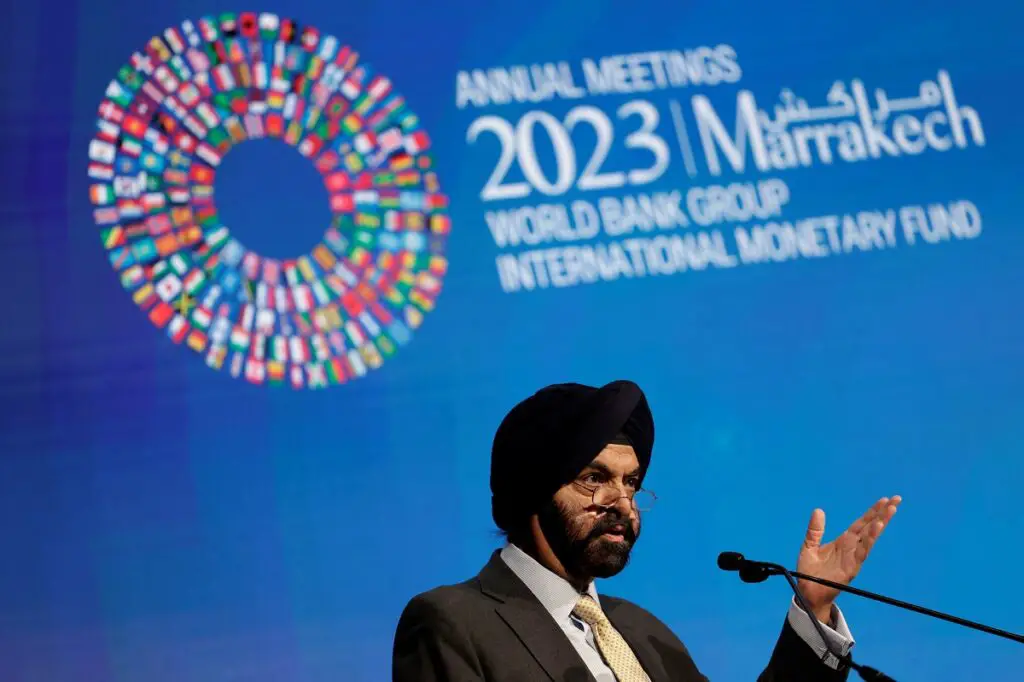- The IMF and the World Bank are sounding a warning that global authorities are falling off course in their endeavors to eradicate extreme poverty by 2030.
- Growing income disparity between rich and poor nations is effectively undermining hopes of eliminating extreme poverty on a global scale.
- In response, policymakers are calling for a multilateral strategy to safeguard countries from the economic challenges stemming from ongoing global crises.
Global financial experts from the International Monetary Fund (IMF) and the World Bank are sounding a warning that authorities are veering off course in their efforts to eradicate extreme poverty by 2030. According to these international organizations, weaker economies are becoming increasingly vulnerable to external shocks, which are disproportionately affecting emerging markets and developing economies.
Simultaneously, the gap in income levels between affluent and impoverished nations is growing more pronounced, effectively diminishing the prospects of achieving the goal of eliminating extreme poverty by 2030.
Eliminating extreme poverty
T
These insights were disclosed during the 2023 World Bank and IMF Annual Meetings in Marrakech. A joint statement that offers the way forward was signed by prominent figures, including World Bank President Ajay Banga, IMF Managing Director Kristalina Georgieva, Kingdom of Morocco Minister of Economy and Finance Nadia Fettah, and Bank Al-Maghrib Governor Abdellatif Jouahri.
Simultaneously, policymakers are now advocating for a multilateral strategy to shield countries from the economic adversities caused by ongoing global crises. These challenges range from the COVID-19 pandemic, the Russia-Ukraine conflict, and severe weather conditions impacting various regions to internal conflicts that have disrupted many countries.
Consequently, most nations are falling behind in their efforts to achieve the UN’s Sustainable Development Goals, particularly the target of eliminating extreme poverty by 2030.
“The scarring effects of successive crises are increasingly apparent, just as many countries are struggling to overcome high inflation, high debt, and significant financing shortfalls to provide basic services, support infrastructure and climate action, and address rising poverty, inequality, and fragility,” a statement by Ajay Banga; Kristalina Georgieva; Nadia Fettah; and Abdellatif Jouahri noted.
As a consequence of these crises, the impact has been particularly pronounced in emerging markets and developing economies. These nations are grappling with challenges, exacerbated by a significant drop in aid and financing from advanced economies.
The reduction in funding has intensified economic difficulties in developing countries, posing a formidable challenge to their growth, job creation, living standards, and infrastructure development. Furthermore, it has deepened existing inequalities.
“Emerging market and developing economies have been especially hard hit. Income divergence with advanced economies has deepened further, and the world is not on a path to eliminate extreme poverty by 2030,” the statement elaborated.
According to the global financial leaders, the world needs to incorporate multilateralism, which involves enhanced global collaborative action on common challenges so that economies can build resilience and expand opportunities for a better future.
Stunted global economic growth
According to the IMF, prospects for global growth in the medium-term are at the lowest level they have been in decades. The global economy continues to recover from the pandemic and Russia’s invasion of Ukraine, but growth remains slow and uneven.
According to IMF’s latest projections, world economic growth will slowdown from 3.5 per cent in 2022 to 3 per cent this year. In 2024, estimates show growth will slip further to 2.9 per cent next year, a 0.1 percentage point downgrade.
The report further indicates that headline inflation is on a decelerating trend, dropping from 9.2 percent in 2022 on an annual basis to 5.9 percent this year and an anticipated 4.8 percent in 2024.
Core inflation, which excludes food and energy prices, is also projected to decrease, though at a slower pace, to 4.5 percent next year. According to the Bretton Woods institutions, most countries are unlikely to achieve their inflation targets until 2025.
The report highlights that between June and late September, oil prices experienced a 25 percent increase due to extended supply cuts by OPEC Plus, including both OPEC and selected non-members. However, they later decreased by approximately 11 percent.
Furthermore, the report notes that food prices remain elevated and could face further disruptions, particularly in the event of an escalation of the conflict in Ukraine. This would place even greater strain on many low-income countries.
“Geoeconomic fragmentation has also led to a sharp increase in the dispersion in commodity prices across regions, including critical minerals,” the note said.
Read also: IMF cuts Sub-Saharan Africa GDP growth forecast to 3.5%
Four Marrakech Principles for Global Cooperation
During the high-level meetings, global leaders reached a consensus that a comprehensive framework is essential to harness the potential of multilateralism for the greater good of the global economy. Termed the “4 Marrakech Principles for Global Cooperation,” these guidelines aim to unite countries with the shared goal of safeguarding future prosperity and eradicating extreme poverty.
“As the global community gathers in Marrakech, we must stand together, unified in our commitment to safeguarding our future prosperity and putting an end to extreme poverty. The prospects for global growth in the medium-term are currently at their lowest point in decades,” the statement noted.
The first principle, named “Reinvigorating Inclusive and Sustainable Growth,” revolves around promoting structural reforms that enhance growth. This involves strengthening governance, upholding the rule of law, fostering trade, and creating a conducive business environment to attract new investments and stimulate job creation.
There is also need to expand financing sources by boosting domestic resource mobilization. Further, the lenders are calling for upscaling the provision and effective use of concessional resources, leveraging donor resources, fostering foreign direct investment, and catalyzing private sector finance, while improving public expenditure efficiency.
Additionally, this principle will address fragility by utilizing mechanisms for supporting fragile and conflict-affected states and jointly addressing global sources of food and energy insecurity.
Building Resilience
Another key principle is ‘Building Resilience.’ This principle entails fortifying our institutions and policies with the support of international organizations. It places a strong emphasis on the significance of maintaining economic stability without causing disruptions for other nations.
Countries should also enhance their debt management and prepare for potential financial crises. This involves improving the management of both domestic and international debts and streamlining the process of debt restructuring.
Being prepared for crises is vital, and it necessitates enhancing the resilience of our supply chains, healthcare systems, and financial infrastructure. This includes the ability to adapt to changes, provide social protection, and establish a financial safety net.
Additionally, countries must safeguard themselves against climate-related risks. They should develop plans to mitigate disaster risks, bolster infrastructure, and address ecological challenges that could lead to population displacement. This involves preserving biodiversity and employing responsible land and water management practices.
“Our understanding of the major risks and disruptive forces facing the global economy has evolved: the existential threat posed by climate change, growing disparities in income and opportunity, and geopolitical tensions are intensifying. Rapid digitalization and technological transformations create new challenges, but also opportunities, and no country should be left behind,” the statement indicated.
Supporting Transformation Reforms
The third principle, called ‘Supporting Transformational Reforms,’ emphasizes speeding up the shift to eco-friendly practices. All countries should work on reducing carbon emissions following the Paris Agreement principles, while also maintaining energy security.
This principle also deals with managing technological changes to prevent digital divisions, bridge the digital gap, improve payment systems, and promote financial inclusion. International rules should be created for things like crypto assets, data protection, cyber security, and artificial intelligence.
To support this, countries need to strengthen their healthcare systems and be prepared for health emergencies. This involves working together to enhance global health security, providing better access to healthcare, and making sure everyone has access to vaccines and medicine.
Countries should also focus on offering fair and high-quality education. This means improving access to early childhood, primary, and secondary education and ensuring students learn effectively in the classroom.
“Building gender equality to expand and enable economic opportunities, empower, and engage women as leaders,” the statement indicated.
Strengthening and Modernizing Global Cooperation
The final principle is ‘Strengthening and Modernizing Global Cooperation.’ This means making the international money system and its rules and institutions better to help countries with their cross-border trade, payments, and investments.
Countries should also make the multilateral trading system stronger. It should support global economic cooperation and growth by being fair, open, and clear, with good ways to resolve conflicts.
This will help collaboration because the IMF and World Bank are ready to work closely with partners to help countries face challenges and make the most of opportunities.
Read also: UN: The IMF and the World Bank biased against developing nations




